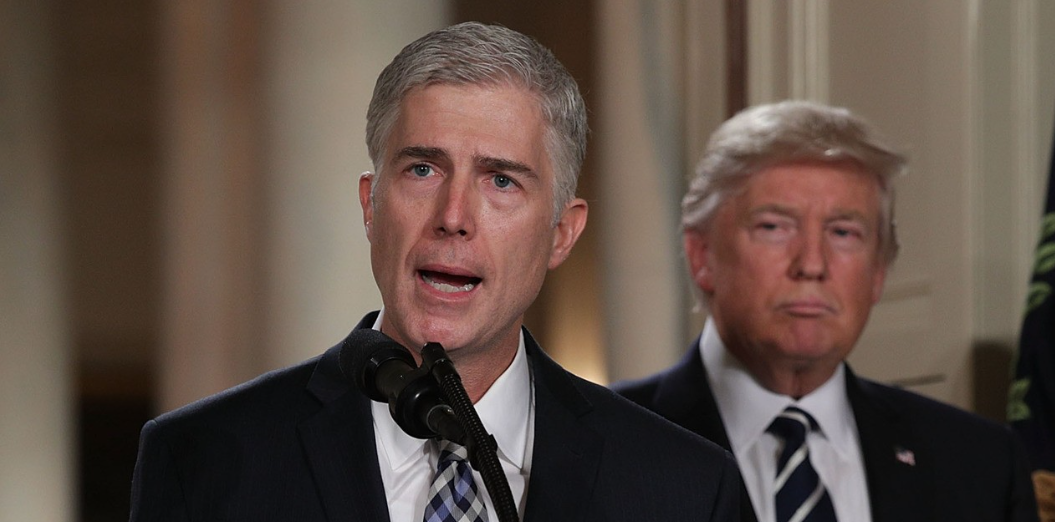Supreme Court Issues Big Immigration Ruling, Could Benefit Trump

The U.S. Supreme Court has ruled that federal courts cannot review visa revocations in cases involving fraudulent marriages for immigration purposes, reaffirming that such decisions are within the sole discretion of the Department of Homeland Security (DHS).
This unanimous decision clarified that while courts may oversee initial visa denials, they have no authority to intervene once DHS has revoked an approved visa. The ruling underscores the expansive power granted to DHS in visa matters and could influence future immigration enforcement, including President-elect Donald Trump’s proposed immigration reforms and plans for mass deportations, as reported by the Washington Examiner.
Justice Ketanji Brown Jackson, appointed by President Joe Biden, wrote for the court, describing the ruling as “a quintessential grant of discretion” to DHS.
“Congress did not impose specific criteria or conditions limiting this authority, nor did it prescribe how or when the Secretary must act,” the opinion stated. “Context reinforces the discretionary nature of §1155.”
The ruling emphasized that the Secretary of Homeland Security “may revoke a previously approved visa petition ‘at any time’ for what the Secretary deems ‘good and sufficient cause,’” solidifying DHS’s authority in these matters.
The case, Bouarfa v. Mayorkas, involved Amina Bouarfa, a U.S. citizen whose husband’s visa was revoked after DHS determined he had previously entered a fraudulent marriage, thereby barring him from obtaining legal residency.
During oral arguments, the justices focused on the statutory limits on judicial review, which apply only to initial visa denials, signaling Congress’s intent to grant DHS exclusive authority over revocation decisions.
Chief Justice John Roberts noted that Bouarfa’s husband could reapply for a visa and seek judicial review if denied again. However, Bouarfa’s attorney, Samir Deger-Sen, argued that restarting the process imposes severe delays and hardships on families.
Immigration advocates have expressed concerns that the ruling could exacerbate challenges for migrants navigating the overloaded immigration system, which has a backlog of over 3 million cases. Critics, including the American Civil Liberties Union, worry that limiting judicial oversight may allow constitutional violations, such as racial bias, to go unchecked. However, no evidence of bias was present in the Bouarfa case.
Separately, a recent federal appeals court decision permitted U.S. Immigration and Customs Enforcement (ICE) to continue using Seattle’s King County International Airport for deportation flights. The 9th Circuit Court of Appeals overturned a 2019 local executive order opposing Trump administration immigration policies, ruling that King County violated its contract by obstructing deportation operations at the airport.
This decision was seen as a victory for the incoming Trump administration, which has vowed to begin large-scale deportations immediately. However, these efforts are expected to face significant resistance from pro-immigration groups.
Tom Homan, the incoming “border czar” and former acting director of ICE during Trump’s first term, reaffirmed his commitment to enforcing immigration laws, even if it means pursuing legal actions against Democratic officials who oppose federal mandates.
Speaking to Fox News’ Sean Hannity, Homan stated, “Title 8, United States Code 1324, makes it a felony to knowingly harbor and conceal illegal aliens from immigration authorities. It also criminalizes impeding federal law enforcement officers.”
“If they don’t want to help, that’s fine. They can get out of the way, but we’re going to do our job,” Homan added. “President Trump has a mandate from the American people to secure the border and protect American lives.”